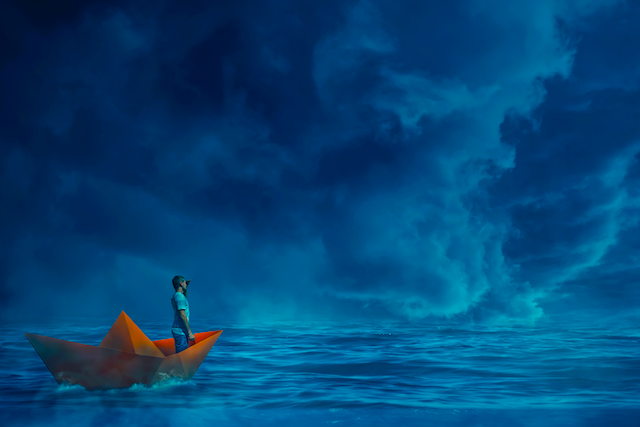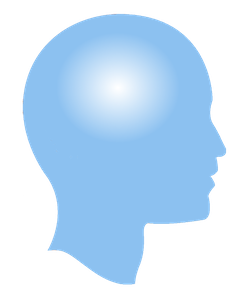
Uncertainty, Interdependence, and Hope
Most of us live in a model of the world where things happen for a reason. Events have identifiable causes. The assassination of Arch Duke Ferdinand led to World War I. A large meteor crashing into the earth caused the extinction of the dinosaurs. Of course we realize that things are never quite that simple but we don’t often stop to think about how much more complicated everything in our lives is.
In his book, Fluke: Chance, Chaos, and Why Everything We Do Matters, social scientist, Brian Klaas, leaves no doubt about the extent of uncertainty involved in everything that happens. For example, have you considered how unlikely it is that you were even born? You, like every one else, could have only be born if all of your ancestors survived all the way back to the oldest ancestor of us all, the first living cell. Along with that there is the that unimaginable improbability of everything going right for every one of your ancestors so that they could survive long enough to have viable offspring. While this in itself is remarkable it gets even more so when you consider that each of those ancestors lived lives filled with uncertainty and countless chance events.
Every individual lives a life rife with random and chaotic circumstances. Most of the time we ignore this side of life and operate in a simplified model of reality. But every now and then something happens that makes us realize that chance and uncertainty are always lurking just under the surface. In his book Klass tells the story of a man named Ivan who had a remarkable experience.
In the summer of 2022, a routine tragedy took place off the coast of Greece. A tourist named Ivan from North Macedonia was swept out to sea. His friends rushed to alert the coast guard, but the searches came up empty. Ivan was declared lost at sea, presumed dead. Then, eighteen hours later, Ivan was found. Miraculously, he was alive. It seemed impossible. But just before he slipped below the waves to drown, Ivan had spotted a small soccer ball, floating on the surface in the distance. He swam over to it with his last ounce of strength. He clung to it through the night and was rescued. The ball saved his life.
Klaas, Brian. Fluke: Chance, Chaos, and Why Everything We Do Matters (pp. 20-21). Scribner. Kindle Edition.
As amazing as Ivan’s ordeal was it gets even more astonishing. The story of Ivan’s survival was published in the local papers. One woman who read the story realized that the life-saving soccer ball was probably the one her boys had accidentally kicked into the sea ten days earlier and eighty miles away. For ten days the ball had bobbed aimlessly in the ocean until, just as Ivan was about to go down for the last time, it miraculously appeared within Ivan’s vision, eighty miles from where it had first landed in the water.
Stories like this one demonstrate how exceedingly unlikely things can occur. But is it really so unlikely? The likelihood of an event depends on the probability of it actually happening. Certainly Ivan’s survival was highly improbable. However, so is everything that happens. Don’t believe me? What are the chances that you are reading this right at this moment? To calculate the probability of this event accurately it would be necessary to first calculate the chances of you having been born in the first place and we already know that’s a long shot. Then there are the chances that you might somehow run across this article and the chances that you might decide to read it at just this time. These are only a tiny fraction of the uncountable circumstances that must have occurred in the past. Now, add in the innumerable circumstances that need to be occurring right at this moment to make it possible for you to be reading these words at this very moment. Little things like: decent health, breathable air, livable temperature, sufficient food and water, enough light, electricity, the internet and all of the technology behind it and on and on. You begin to see that our lives are a series of unfathomably rare and unimaginably complex moments.
No wonder there is such a high degree of uncertainty in the world. When any moment depends on an infinite number of causes how can we be expected to predict the future with any degree of certainty. Making predictions about the future is like predicting the weather. We can look at current conditions and trends but there is no guarantee that they will not be significantly altered by unforeseeable factors at any moment. Every instant is a butterfly effect (Google it if necessary).
Uncertainty then is a function of the vast webs of influences that shape every changing moment. Interdependence is a term that captures the dynamic of the interconnection of things. Things do not exist independently. Things consist of dynamic relationships between their components, which in turn, consist of dynamic relationships between their components and so on. This is particularly evident in living things. Ecosystems are communities of organisms living interdependently with each other and their environment. Ultimately, the entire biosphere of the planet is one very large interdependent energetic web of such ecosystems.
Lifeforms like us live uncertain and precarious lives because living things are not self-sufficient. We are dependent on others and the environment for the things we need to survive. An interdependent existence is one of inherent uncertainty and vulnerability. At times this lack of control can be overwhelming and lead to despair. But the uncertainty of an interdependent existence is a two-edged sword. The opposite of uncertainty is certainty and it is to be avoided at all costs. Absolute certainty is only possible in the complete absence of change or growth. Absolute certainty is stasis, an absence of life. It is death.
Living things need to adapt to changing environmental conditions. Modern human beings also have to adapt to rapidly transforming social structures and technological developments. But great uncertainty contains within it great possibility. And with possibility comes hope. Only in a world of uncertainty where change is possible can we hope to create a sustainable future. We cannot know for certain what the future will bring but we do know the kind of future we need in order to survive as a species. With the gift of possibility wrapped up in a cloud of uncertainty we have a chance at developing a more life-friendly way of being in the world. If there is one thing that is certain it’s that this is a gamble we must take.
Interdependence -> Uncertainty -> Possibility -> Hope
